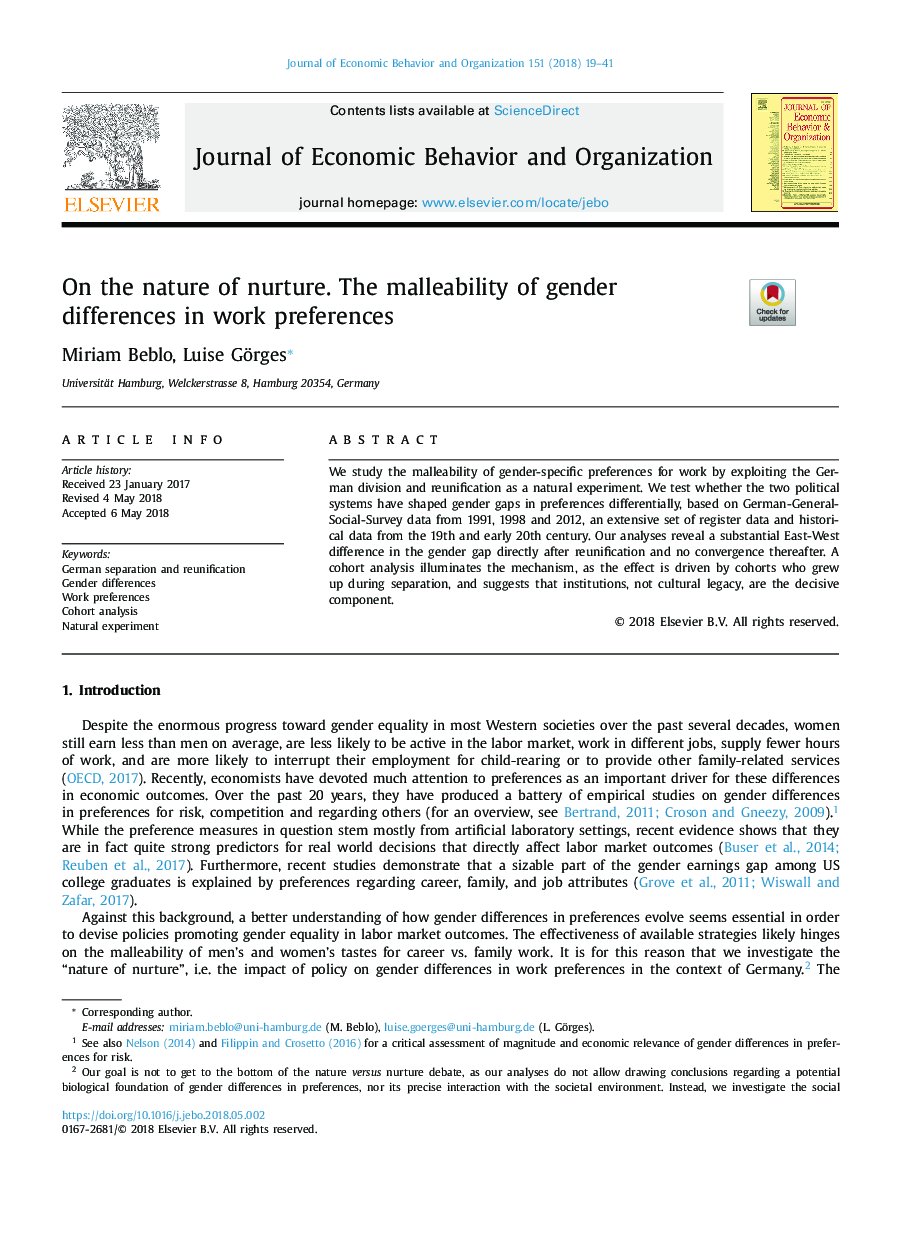| Article ID | Journal | Published Year | Pages | File Type |
|---|---|---|---|---|
| 7242465 | Journal of Economic Behavior & Organization | 2018 | 23 Pages |
Abstract
We study the malleability of gender-specific preferences for work by exploiting the German division and reunification as a natural experiment. We test whether the two political systems have shaped gender gaps in preferences differentially, based on German-General-Social-Survey data from 1991, 1998 and 2012, an extensive set of register data and historical data from the 19th and early 20th century. Our analyses reveal a substantial East-West difference in the gender gap directly after reunification and no convergence thereafter. A cohort analysis illuminates the mechanism, as the effect is driven by cohorts who grew up during separation, and suggests that institutions, not cultural legacy, are the decisive component.
Related Topics
Social Sciences and Humanities
Economics, Econometrics and Finance
Economics and Econometrics
Authors
Miriam Beblo, Luise Görges,
